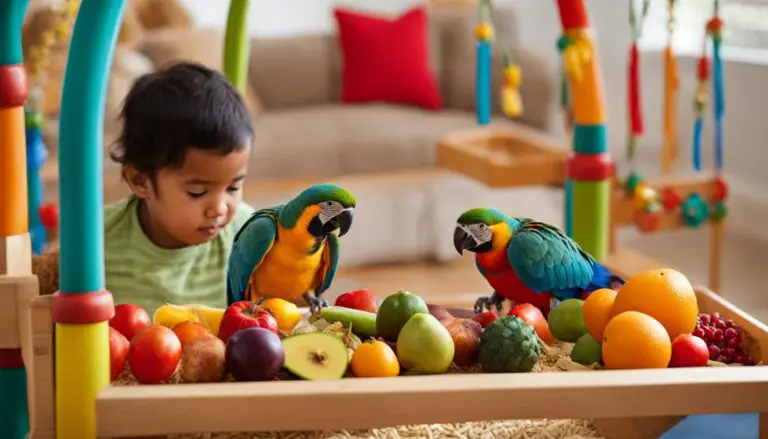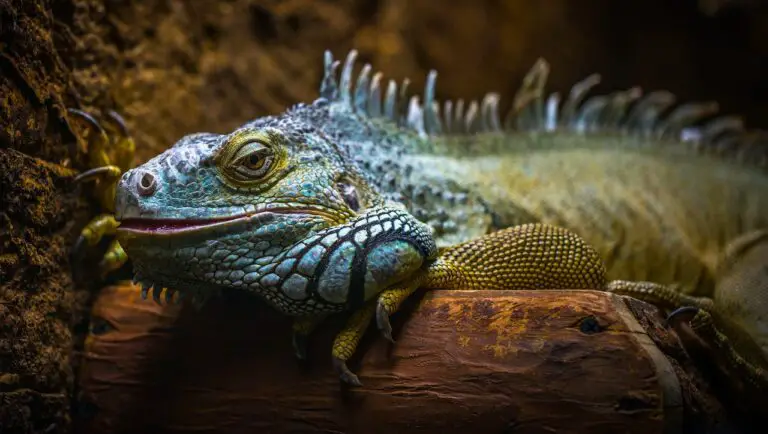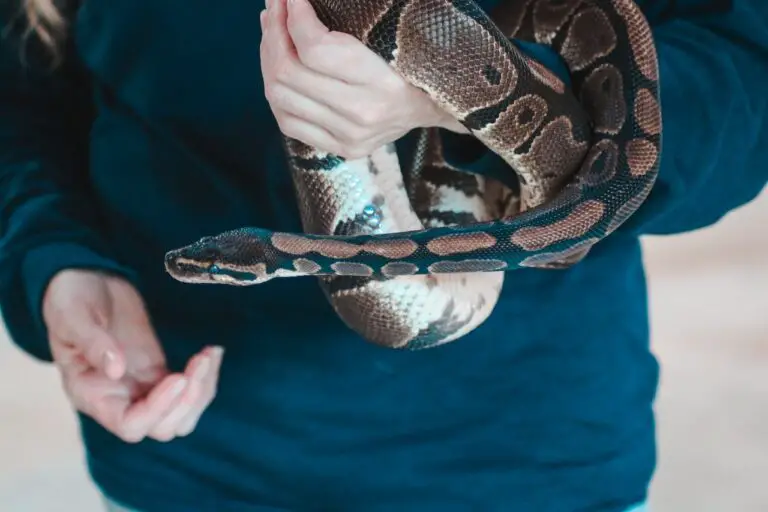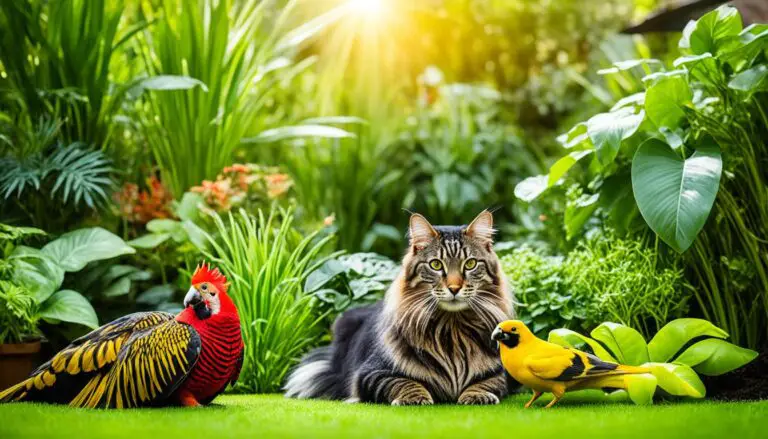Exotic Pet Care for Nocturnal Pets: Tips & Essentials
Taking care of nocturnal exotic pets requires special knowledge and attention. In this comprehensive guide, we will provide you with essential tips and information on how to properly care for your nocturnal pets. From understanding their behavior to designing a comfortable habitat and setting up a feeding schedule, we will cover all the necessary aspects to ensure the well-being of your exotic pets.
Key Takeaways:
- Understanding the behavior of nocturnal pets is essential for providing appropriate care.
- Nocturnal pets have unique needs and require specialized care.
- Creating a comfortable habitat that mimics their natural environment is crucial.
- Feeding schedules should be tailored to their nocturnal activity.
- Regular veterinary check-ups and preventative care are important for their health.
Understanding Nocturnal Pet Behavior
Nocturnal pets exhibit unique behavioral patterns that distinguish them from diurnal animals. To provide appropriate care, it is essential to have a deep understanding of their behavior and adapt accordingly. This section will delve into the nocturnal pet behavior, focusing on how to adapt to their nighttime activity, cater to their behavioral needs, and establish a routine that aligns with their nocturnal habits.
Adapting to Their Nighttime Activity
Nocturnal pets are most active during the night, which means adjusting to their schedule is crucial. Providing a dark and quiet environment during the day can help them rest undisturbed. You should also consider providing appropriate lighting during their active hours. By working around their nighttime activity, you can ensure their comfort and well-being.
Behavioral Needs of Nocturnal Species
Nocturnal species have specific behavioral needs that require attention. They may engage in activities such as exploring, foraging, or socializing during the night. Understanding and fulfilling these needs is essential for their physical and mental stimulation. Providing opportunities for enrichment and creating an environment that allows them to engage in their natural behaviors is key to their overall welfare.
Creating a Routine that Suits Nocturnal Habits
Establishing a routine that accommodates your nocturnal pet’s habits is essential for their overall well-being. This includes scheduling feeding, playtime, and socialization during their active hours. Consistency in their routine provides a sense of security and helps them thrive in their environment. By creating a routine that respects their natural tendencies, you can promote a fulfilling and comfortable life for your nocturnal pet.
Exotic Pet Care for Nocturnal Pets
Caring for nocturnal exotic pets requires specialized care and attention. These unique creatures have specific needs that must be met to ensure their health and well-being. In this section, we will provide you with essential tips and guidelines for taking care of your nocturnal pets.
One important aspect of exotic pet care for nocturnal animals is creating a suitable habitat. Designing an environment that mimics their natural surroundings is crucial. This includes providing appropriate hiding spots, climbing structures, and burrowing areas. It’s also important to consider temperature and humidity control to create a comfortable living space for your exotic pets.
Another essential aspect of caring for nocturnal pets is understanding their feeding and healthcare needs. Nocturnal animals have different feeding patterns, and it’s necessary to establish a feeding schedule that accommodates their nighttime activity. Additionally, it’s crucial to provide them with a balanced and appropriate diet to ensure their nutritional needs are met.

Regular veterinary check-ups are also crucial for exotic pet health. Finding a specialized exotic pet veterinarian who understands the unique needs of nocturnal species is essential. These professionals can provide preventative healthcare measures that promote the longevity of your pets and detect any potential health issues early on.
In summary, caring for nocturnal exotic pets requires specialized care and attention. By following the essential tips and guidelines provided in this section, you can ensure the well-being and happiness of your exotic pets. Remember to create a suitable habitat, establish a feeding schedule, seek regular veterinary check-ups, and provide the necessary care specific to nocturnal species.
Designing a Comfortable Habitat for Nocturnal Pets
Creating a comfortable habitat is essential for the well-being of nocturnal pets. When designing the enclosure for your exotic pets, it is important to consider their natural environment and provide the necessary space and security for their specific needs. Additionally, taking into account their climbing and burrowing instincts is crucial for their overall health and happiness.
Mimicking Natural Environments in Enclosures:
Nocturnal pets thrive when their habitat closely resembles their natural environment. Incorporating natural elements such as rocks, branches, and foliage can provide a sense of familiarity and comfort. By recreating their native surroundings, you can help reduce stress and promote a sense of well-being.
Importance of Space and Security:
Nocturnal pets require ample space to move and explore during their active hours. Ensure that the enclosure is adequately sized for your pets, allowing them to exercise and exhibit their natural behaviors. Providing hiding spots and secure areas within the habitat will give them a sense of security, reducing stress and promoting their overall health.
Special Considerations for Climbing and Burrowing:
Many exotic pets, such as reptiles and small mammals, have climbing and burrowing instincts. Design the enclosure to include vertical structures, such as branches or vertical hides, that allow them to climb and exercise their natural abilities. For burrowing species, provide suitable substrate or hides that mimic their natural burrows, allowing them to engage in this behavior.
By carefully considering the natural behaviors of nocturnal pets and incorporating these design elements into their habitat, you can create a comfortable and enriching environment for them to thrive.
Feeding Schedule for Nocturnal Pets
Nocturnal pets, just like other exotic pets, require a feeding schedule that caters to their specific nutritional needs. Understanding their dietary requirements, selecting safe and appropriate food choices, and timing their meals correctly are key factors in ensuring their optimal health and well-being.
Understanding Nutritional Needs
When it comes to feeding nocturnal pets, it is crucial to have a comprehensive understanding of their nutritional needs. Each species has unique dietary requirements, which can vary based on factors such as age, size, and activity level. Researching and consulting with veterinarians or exotic pet specialists can help you determine the specific dietary needs of your nocturnal pet.
Safe and Appropriate Food Choices
When selecting food for your nocturnal pets, prioritize safe and appropriate options that meet their nutritional requirements. Opt for high-quality commercial pet food formulated specifically for your pet’s species and age group. For some exotic pets, fresh fruits, vegetables, and insects may also be appropriate additions to their diet. It is important to avoid feeding your pet foods that are toxic or potentially harmful to them.
Timing Meals for Nocturnal Animals
Nocturnal animals are most active during the night, which means that their feeding schedule should align with their natural behavior. It is recommended to offer food to your nocturnal pet just before their active period, which may be in the evening or at night, depending on the species. This timing allows them to consume their meal during their active hours, mirroring their natural feeding habits.

By implementing a feeding schedule that considers your pet’s nutritional needs and aligns with their natural behavior, you can ensure they receive the nourishment they require to thrive. Always monitor your pet’s weight and adjust their diet if necessary, consulting with a veterinarian whenever needed.
Specialized Care for Nocturnal Pets
Nocturnal pets have unique needs that require specialized care to promote their health and well-being. In this section, we will highlight two crucial aspects of caring for nocturnal pets: temperature and humidity control, and UV lighting.
Temperature and Humidity Control
Creating the right temperature and humidity levels in your nocturnal pet’s habitat is essential for their overall health. Different species have specific temperature and humidity requirements, so it’s crucial to research and understand the ideal conditions for your pet. Maintaining the correct temperature and humidity levels can help prevent respiratory issues, dehydration, and stress.
Monitor the habitat using a reliable thermometer and hygrometer to ensure the conditions remain within the recommended range. Make adjustments as necessary by using heating elements, cooling devices, or misting systems. Providing hiding spots and materials that retain moisture can also help create microclimates within the enclosure.
UV Lighting Needs for Health and Well-being
UV lighting is another crucial factor in the care of nocturnal pets, as many species require exposure to UVB rays to synthesize vitamin D3 and maintain proper calcium metabolism. Lack of UVB lighting can lead to various health issues, including metabolic bone disease.
Invest in high-quality UVB bulbs specifically designed for reptiles and other nocturnal species. These bulbs should be replaced regularly as their UV output diminishes over time. Position the bulbs according to the specific needs of your pet, ensuring they receive enough exposure to the UVB rays without overexposure or burning.
It’s essential to research your pet’s species to determine the appropriate duration and distance of UV exposure. Consult with a veterinarian or reptile specialist to ensure you provide the correct lighting setup to promote your pet’s health and well-being.
Comparison of Temperature and Humidity Requirements for Nocturnal Pets
| Nocturnal Pet Species | Temperature Range (°F) | Humidity Range (%) |
|---|---|---|
| Leopard Gecko | 75-85 | 30-40 |
| Madagascar Hissing Cockroach | 75-85 | 70-80 |
| African Fat-Tailed Gecko | 80-88 | 40-50 |
| Sugar Glider | 70-80 | 40-50 |
It’s important to note that these temperature and humidity ranges are general guidelines and may vary depending on the specific needs of individual pets or species. Regularly measuring and adjusting the conditions based on your pet’s behavior and health is recommended.
By providing specialized care that includes temperature and humidity control, as well as appropriate UV lighting, you can create a comfortable and healthy environment for your nocturnal pets, promoting their overall health and well-being.
Exotic Pet Health: Regular Veterinary Check-ups
Regular veterinary check-ups are essential for maintaining the health of your nocturnal pets. Just like any other pets, exotic animals require proper medical care and preventative healthcare to ensure their well-being. By scheduling regular exams with a specialized exotic pet veterinarian, you can address any potential health concerns and ensure that your pets receive the necessary treatments and vaccinations.
When it comes to finding an exotic pet veterinary specialist, it’s important to choose a practitioner who has experience and expertise in treating exotic species. Look for a veterinarian who specializes in exotic pets or has a particular interest in caring for nocturnal species. They will have a deep understanding of the unique needs and health challenges that exotic pets may face.
Preventative healthcare plays a vital role in promoting longevity for exotic pets. Regular check-ups allow veterinarians to detect and address potential health issues early on, preventing them from developing into more serious conditions. During these check-ups, your vet may conduct physical examinations, perform diagnostic tests, administer vaccines, and provide guidance on proper nutrition and care.
The Importance of Socialization and Enrichment
Socialization and enrichment are vital aspects of caring for nocturnal exotic pets. Interaction and mental stimulation play a crucial role in enhancing the well-being and quality of life for these unique animals. By providing opportunities for socialization and enrichment, you can ensure that your nocturnal pets lead fulfilling and happy lives.
Proper socialization allows your pets to develop positive relationships with humans and other animals. It helps them build trust, reduces stress, and prevents behavior problems. Regular interaction with their owners and exposure to various stimuli also helps to prevent boredom and loneliness.
To provide mental stimulation for your pets, consider incorporating different forms of enrichment. This includes activities that challenge their instincts, engage their senses, and encourage problem-solving. Examples of enrichment for exotic pets can include puzzles, toys, hiding treats, and creating obstacle courses.
It is important to identify and cater to the specific needs of your nocturnal pets when it comes to socialization and enrichment. Observe their behavior and preferences to determine the types of interactions and activities they enjoy the most. Keep in mind that each nocturnal species may have different requirements and preferences.
By investing time and effort into socialization and enrichment, you provide your nocturnal pets with the mental stimulation and social interaction they need to thrive. A stimulating environment enhances their overall well-being and contributes to their overall happiness. Remember to always prioritize the specific needs and preferences of your nocturnal pets in order to provide them with the best care possible.
Conclusion
In conclusion, caring for nocturnal pets requires a commitment to lifelong learning and responsible ownership. Understanding the specific needs of these exotic pets and providing ethical care based on their unique requirements is essential for their well-being.
Continuously educating yourself about their behavior, habitat design, feeding schedule, specialized care, and veterinary check-ups is crucial to ensure that you are providing the best care possible. Staying up-to-date with the latest research and guidance from experts in exotic pet care will help you make informed decisions for your nocturnal pets.
Responsible ownership goes beyond meeting their basic needs – it includes creating a stimulating environment through socialization and enrichment. By providing proper mental and physical stimulation, you can enhance their quality of life and strengthen your bond with them.
Remember, being a responsible owner means being proactive and ensuring that you are giving your nocturnal pets the attention, care, and love they deserve. By dedicating yourself to the lifelong learning of exotic pet care, you are taking an important step towards ensuring a fulfilling and rewarding relationship with your nocturnal pets.
Source Links
- https://www.oakhurstvet.com/blog/the-big-needs-of-small-animals-understanding-the-basics-of-exotic-pet-care/
- https://www.swanimalhospital.net/exotic-pet-care-tips
- https://www.petcarevb.com/pdfs/PetCare-ReptileWellnessBooklet.pdf
Peter Stones is the founder of Exotic Pets Place, the leading online resource for exotic pet care information.
With over 10 years of hands-on exotic pet ownership experience, he is deeply passionate about sharing his expertise to help others properly care for their unusual pets.
When he's not writing extensively researched articles or connecting with fellow exotic pet enthusiasts worldwide, you can find Peter at home tending to his own beloved menagerie of exotic animals.

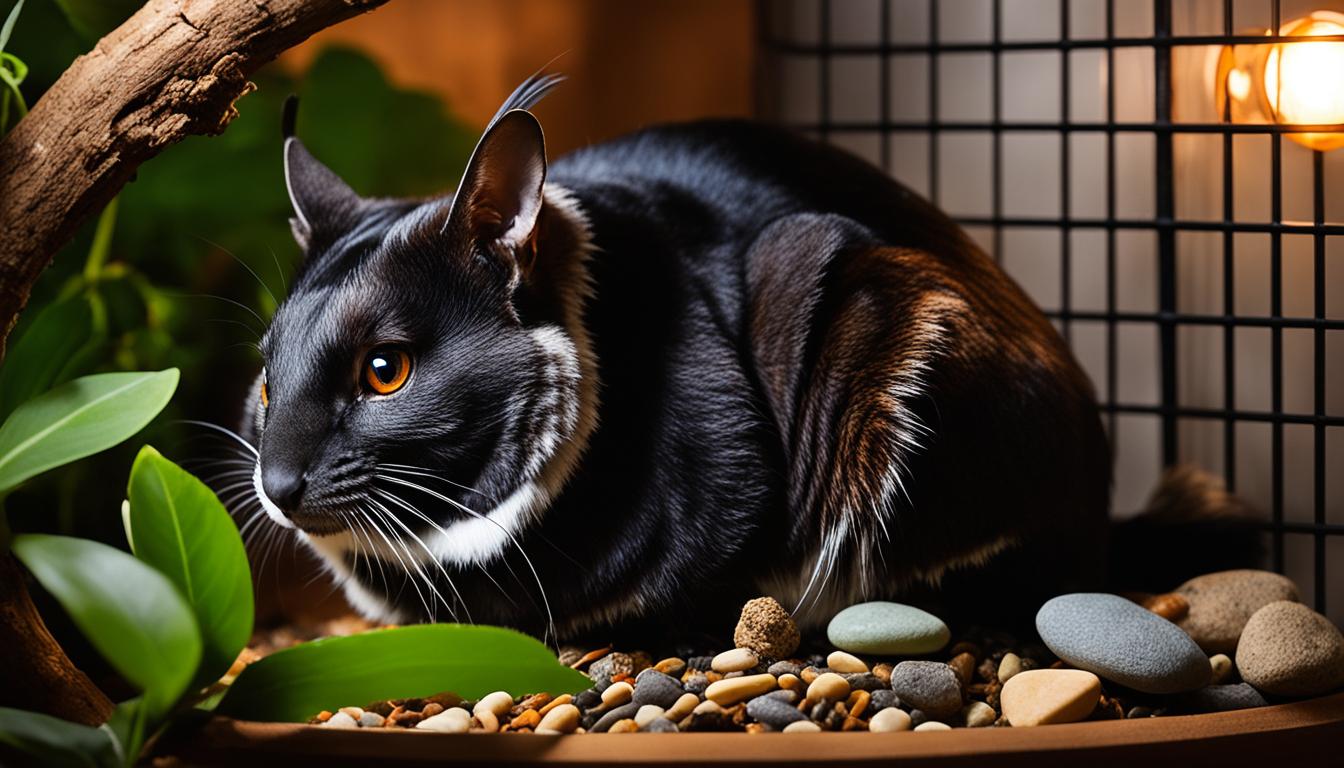
![How to Handle Your Exotic Pet During Extreme Weather [Vital Tips]](https://exoticpetsplace.com/wp-content/uploads/2023/06/How-to-Handle-Your-Exotic-Pet-During-Extreme-Weather-Vital-Tips-a-thunderstorm-near-a-beach-768x576.jpg)
